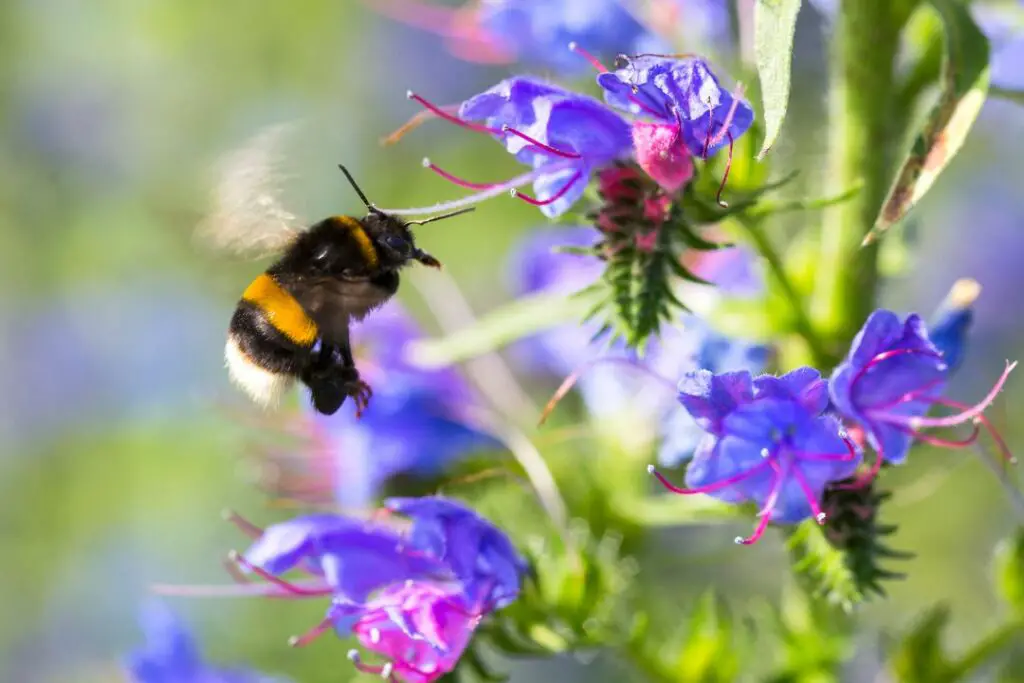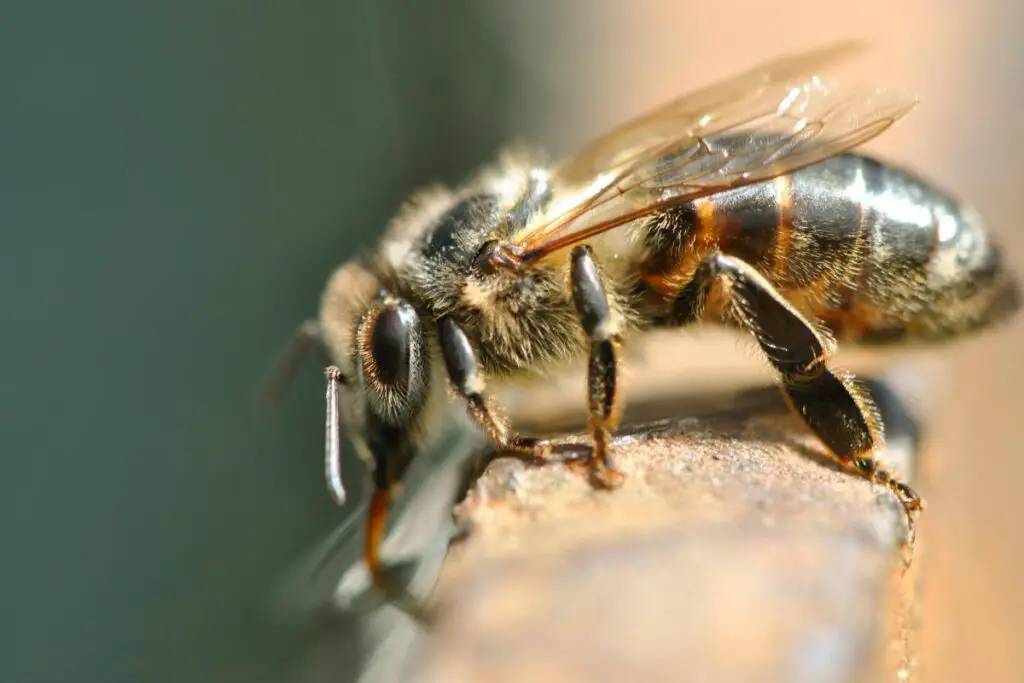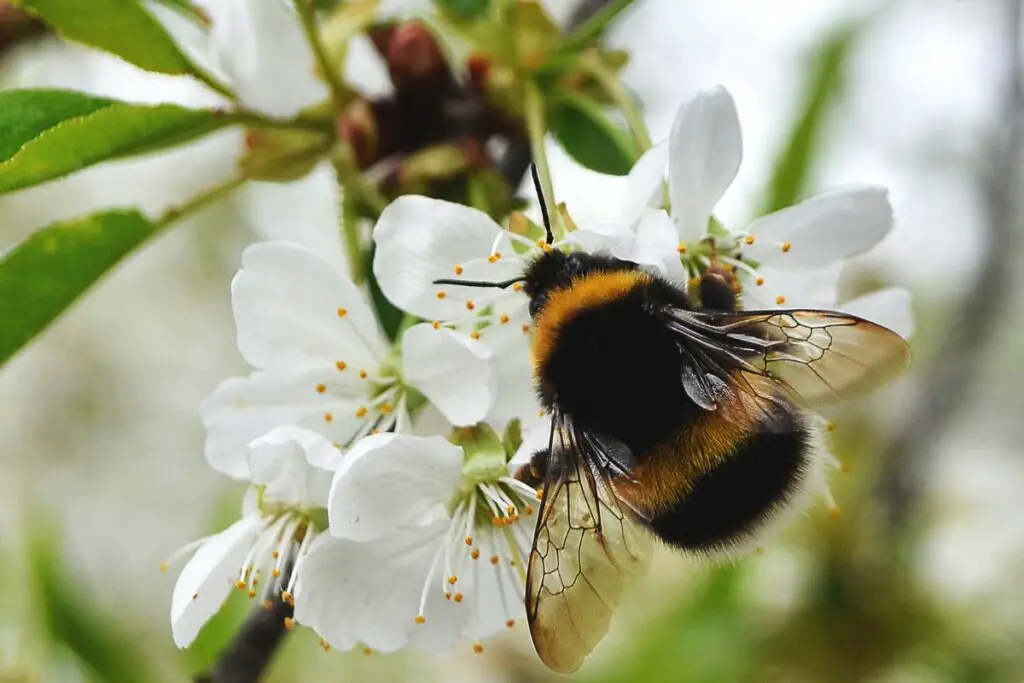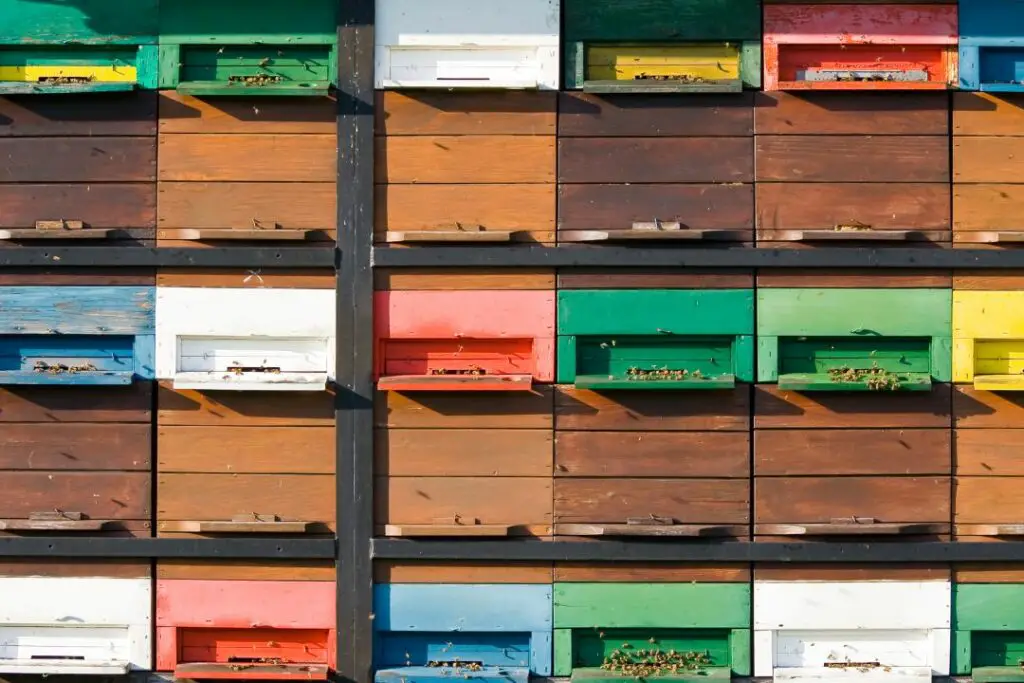Last updated on October 24th, 2023 at 05:04 pm
The unconventional idea of bees as pets might initially raise eyebrows. After all, when we think of pets, we often picture furry friends who curl up on our laps, not buzzing insects that flit from flower to flower.
But there’s a growing community of individuals that have started to try and make bees their pets.
So is this just another fad, or are people starting to keep bees as pets? Let’s look at this new trend and whether it benefits bees.
*Additional reading – Have you ever wondered if bees can bond with humans? Check out our deep dive on whether bees can bond with humans to find the answer.
Should You Keep A Bee As A Pet?
No, you should never attempt to keep a bee as a pet. Bees are wild insects that need to be outdoors collecting nectar and pollen.
It doesn’t matter if it’s a honey bee, solitary bee or bumblebee as a pet; none of it’s a good idea. Anyone who says bees make good pets is sadly uninformed.
These creatures thrive in gardens, fields and wild areas and should never be kept inside. Bees already struggle due to habitat loss, so taking a worker away from a hive or nest is taking food away from the nest’s inhabitants.
Can you keep a wasp as a pet?
No, wasps are social insects like bees and should not be kept as pets.
Despite their sometimes bad reputation, wasps can be just as friendly as bees and will get in very close proximity to us humans without stinging.
But much like bees, this doesn’t mean you should keep them as pets for all of the same reasons.
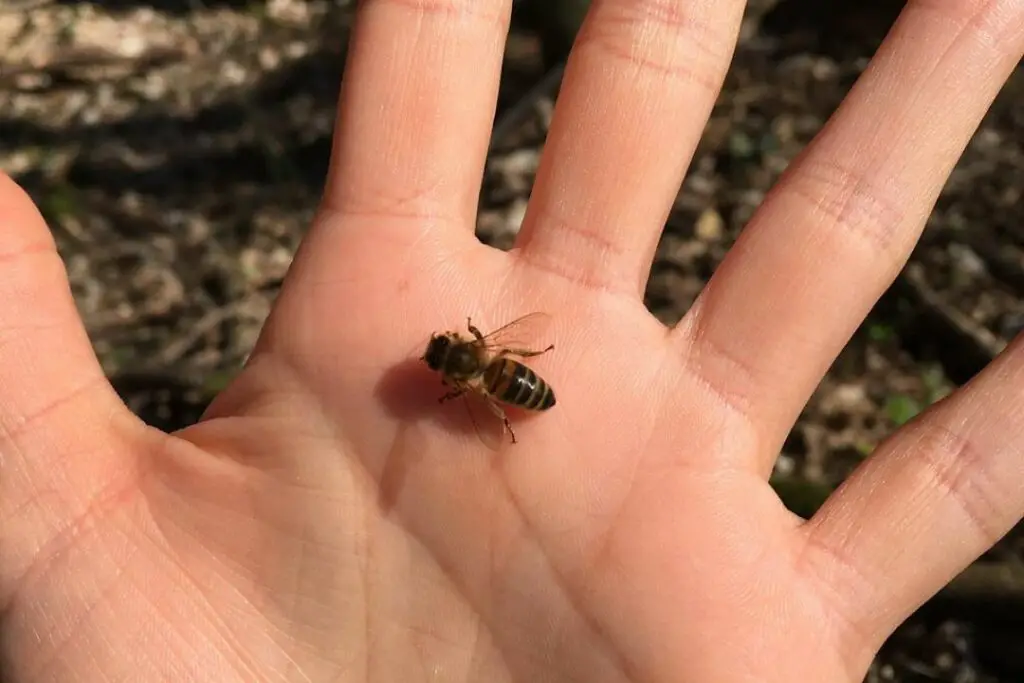
Can You Pet A Bee?
We’ve seen many videos online of people stroking furry bumblebees or gently petting them on their heads. Why this might seem cute, it’s something we strongly advise against here at Revive a Bee. And it’s for a few good reasons.
Risk of a sting
Many bee species are equipped with a barbed sting to defend themselves against predators and perceived threats.
When you try to pet a bee, its stinger could accidentally puncture your skin, which means pain for you and probable death for the poor bee.
Damage to the bee
Bee’s bodies and wings are incredibly delicate, and even the softest touch from a human could cause intentional damage.
Handling a bee and touching its wings can lead to tears or deformities in the wing structure. Even a minor tear caused by our rough skin can severely impact a bee’s ability to fly, affecting its ability to forage for food and contribute to the colony.
Worse yet, our fingers have natural oils that can carry contaminants. Transferring these to a bee’s wings can interfere with aerodynamics or introduce harmful substances into the nest or hive.
Unintentional distress
Imagine if a gigantic hand flew over the sky, blocked out the sun, and patted you on the head. Scary right?
Well, it’s precisely the same when we try and pet a bee. It’s sensory overload, and they can feel threatened, leading to unnecessary upset, all because you want to do something good.
They’ll fly away at best, and at worst, they’ll try and sting you in defence.
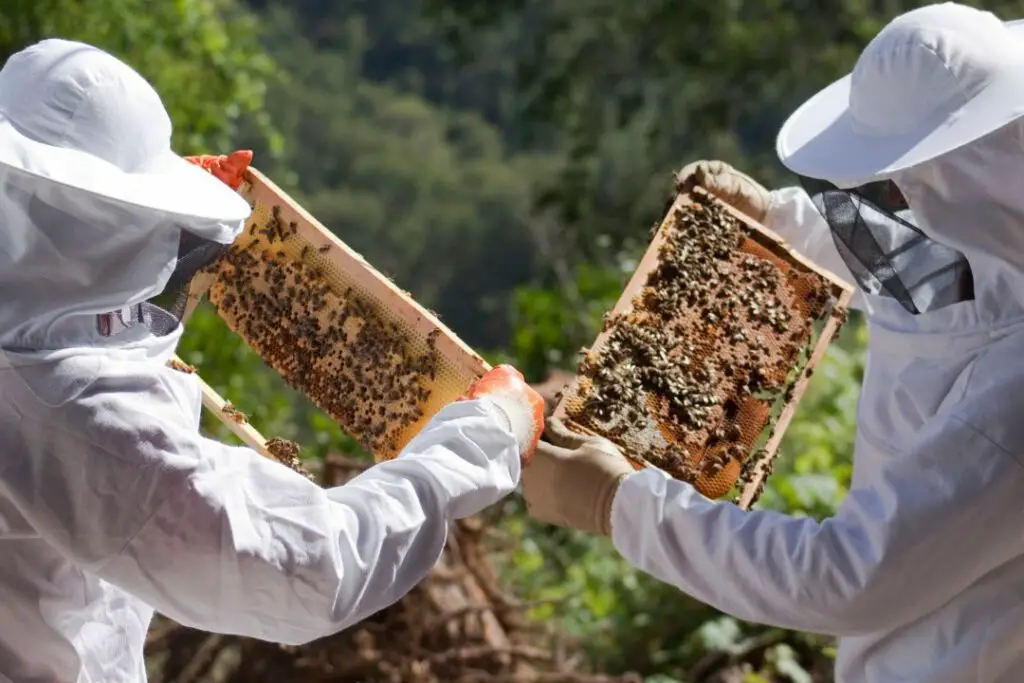
What About Bees In Managed Hives?
So, are bees kept in managed hives by beekeepers considered pets?
No, even honey bees in managed hives are still wild animals. Beekeepers provide suitable homes for bees, but that’s far from the domesticated animals we think of as pets.
What’s An Alternative To Petting Bees?
There are numerous ways to support and help bees without the need to handle or “pet” them physically. Let’s explore some of these bee-friendly actions that we recommend:
Plant a Bee Garden
Opt for native and bee-friendly plants that provide nectar and pollen. Ensure a range of plants bloom at different times of the year, offering a continuous food source.
Provide Fresh Water
Set up a shallow water dish with stones or marbles for bees to land on. This ensures they can drink without the risk of drowning.
Reduce or Eliminate Pesticides
Many pesticides are harmful to bees. Opt for natural and organic pest control methods.
Support Local Beekeepers
Purchase local honey and beeswax products. This supports beekeepers who maintain healthy bee populations.
Educate and Advocate
Spread the word about the importance of bees and the challenges they face. Support policies and initiatives that protect bees and their habitats. Head over to our bee blog to learn more.
Create Bee Habitats
Bee hotels provide nesting sites for solitary bees. Allow parts of your garden to grow wild, offering natural habitats for bees.
Avoid Swatting or Disturbing Bees
Bees are generally non-aggressive. If one flies close to you, stay calm and avoid sudden movements.
Support Bee Conservation Organizations
Donate to or volunteer with organizations dedicated to bee research, conservation, and education.
Use Bee Revival Tools
If you come across exhausted bees, tools like bee revival kits can be a lifesaver, offering a quick energy boost to these tired pollinators.
Stay Informed
Keep up with the latest research and news about bees. The more you know, the more effectively you can help.
*Not the biggest fan of bees? Check out our guide on how to keep bees away without hurting them.
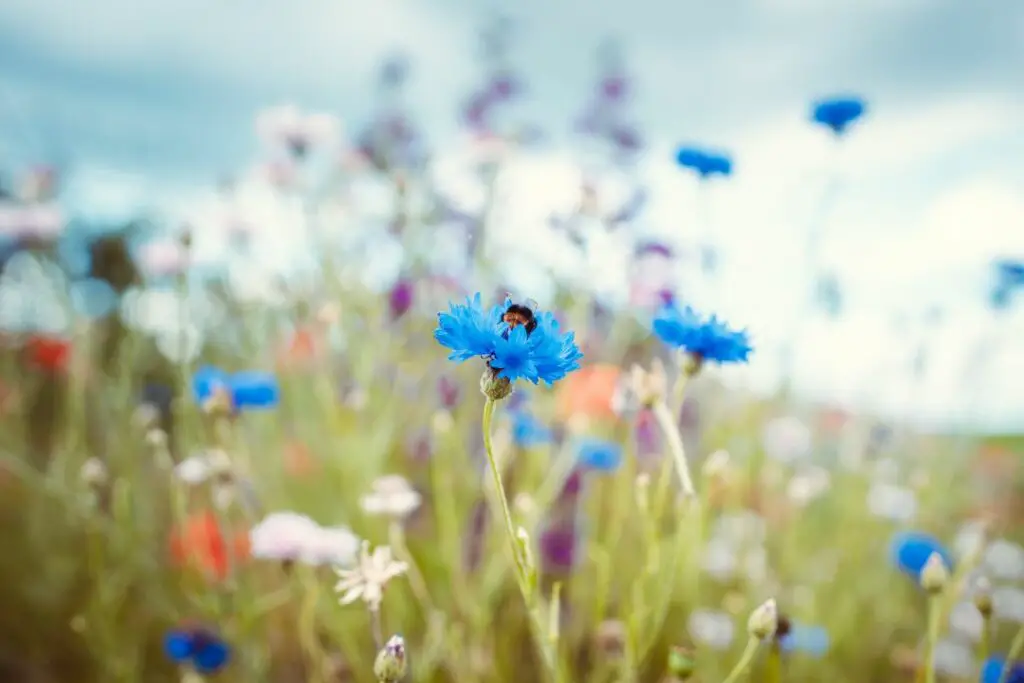
In Conclusion
If you want to learn more about the wonderful bees and insects that inhabit your garden, then make sure to check out the other reads below, packed with fascinating insights.
Or, if you want to carry on your journey into bees and humans, head over to our exciting read on whether bees and humans can bond.

